Thomas Mann House Events Archive
2022
Europeans in Exile: Thomas Mann’s L.A. | Capstone Seminar at UCLA
Los Angeles
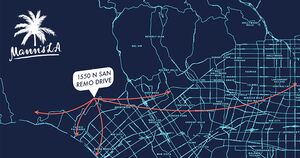
Information
Thomas Mann was one of many European artists and intellectuals who made Los Angeles their new home in the 1930s and 40s. This seminar will examine Mann's connections to the city and his network of intellectuals with whom he was in dialogue, including sociologists Theodor W. Adorno and Max Horkheimer, writers such as Christopher Isherwood and Aldous Huxley, composers Arnold Schoenberg and Igor Stravinsky, and filmmakers Ernst Lubitsch and Jean Renoir.
The seminar will be led by Professor Wendy Perla Kurtz and Anthony Caldwell, Assistant Director of the Digital Research Consortium at UCLA, as well as by Nikolai Blaumer, Program Director of the Thomas Mann House, and Benno Herz, Project and Communications Manager at the Thomas Mann House. During the course, students will connect practices in digital humanities to the subjects of the class.
For more information visit: https://dh.ucla.edu/undergradcourses/
Partner
The Seminar is a cooperation between the UCLA Digital Humanities Department and the Thomas Mann House


Villa Aurora & Thomas Mann House e. V. is supported by the German Federal Foreign Office and Federal Government Commissioner for Culture and the Media.


Discourses and Likes: Emancipation Going Viral
Online
Information
Deutsches Haus at NYU and the Thomas Mann House present a conversation on "Discourses and Likes: Emancipation Going Viral" between Fatma Aydemir and Mohamed Amjahid, which will be moderated by Ulrich Baer (NYU).
In the last couple of years, queer-feminist, antiracist, and emancipatory discourses have become increasingly visible, both in the United States and in the German and European mainstream. Social media has played a vital role in centering and raising awareness about these issues, while inadvertently requiring a watering-down of complex realities to like-able and shareable content.
In this moderated conversation, the writers Fatma Aydemir and Mohamed Amjahid will discuss their personal experiences as traditional long-form journalists who are actively creating content on social media channels; the impact content culture has had on their work; and the potential advantages and pitfalls they see in instagrammable literature, journalism, and activism.
To RSVP please click here.
Participants
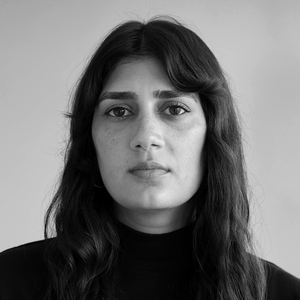
Fatma Aydemir is an author and journalist based in Berlin. She studied German Literature and American Studies in Frankfurt am Main. Her debut novel Ellbogen (Elbow) from 2017 was awarded with several literary prizes and is being adapted as an upcoming movie. She co-edited the essay collection Eure Heimat ist unser Albtraum (Your Homeland Is Our Nightmare). Her latest novel Dschinns (Jinns) will be published by Hanser Literaturverlage in February.

Mohamed Amjahid was born as the son of so-called guest workers in Frankfurt am Main in 1988. He studied political science in Berlin and Cairo. After completing his master's degree Amjahid worked for several big German newspapers. Amjahid is a political journalist, book author and moderator. He was an editor at ZEITmagazin and was awarded among others the Alexander Rhomberg Prize and the Henri Nannen Prize. He received wide attention for his bestsellers Among Whites and Whitewash. Amjahid is a 2022 Fellow at the Thomas Mann House in Los Angeles.

Ulrich Baer (moderator) is University Professor at New York University where he teaches literature and photography. His books include Remnants of Song: The Experience of Modernity in Charles Baudelaire and Paul Celan; Spectral Evidence: The Photography of Trauma; The Rilke Alphabet; What Snowflakes Get Right: Free Speech, Equality and Truth in the University, and, as editor and translator, among others, The Dark Interval: Rilke’s Letters on Loss. Baer has published editions of numerous classic books with Warbler Press.
Attendance Information
To RSVP for this conversation, please click here. Registration is free and open to the public. Only registered attendees will receive Zoom webinar information via email prior to the event.
Partners
This event is presented by Deutsches Haus at NYU and the Thomas Mann House. Funded by the DAAD from funds of the German Federal Foreign Office.


„Ein reizendes Köpfchen“. Franz von Lenbach's Portrait of Katia Pringsheim
Munich

Information

A girl in half profile: dark hair, red cap, alert look. The painting (oil on cardboard, 41.5 x 35.5 cm) shows Katia Pringsheim, later Thomas Mann's wife, portrayed by Franz von Lenbach. The famous Munich painter produced numerous portraits of members of the Pringsheim family - but this portrait, which is being presented to the public for the first time today, was only recently identified - its provenance had been concealed when it was sold in 1940.
Talking about the history of the portrait as well as difficulties and opportunities in dealing with Nazi fugitive property:
Katrin Stoll, head of the auction house Neumeister, the provenance expert Alfred Grimm (former Bavarian National Museum), the historian Dirk Heißerer, the managing director of the Thomas Mann House Heike Catherina Mertens and Robert Schoenhofer, whose grandfather acquired the "Portrait of a Girl" in 1940. Afterwards, Robert Schoenhofer, together with Thomas Mann's grandson Frido Mann and Tamara Marwitz, great-granddaughter of Hedwig Pringsheim, representing the descendants of Hedwig and Alfred Pringsheim, will hand over the painting to the Thomas Mann House in Pacific Palisades.
Partners
In cooperation with Literaturhaus München and Aktionshaus Neumeister
Between Los Angeles and Europe: New Approaches to Transatlantic European Studies | Seminar at UCLA
Los Angeles

Information
The seminar begins with an overview of transatlantic cultural, literary, and historical studies going as far back as the colonial era (New Spain, Mexican California). Then, it examines the displacement and dispossession of Indigenous peoples in southern California by Anglo-Americans and European settlers during the nineteenth century, followed by a targeted investigation of transatlantic relations between Angelenos and German immigrants during the twentieth century.
Students apply their newly acquired knowledge to current transatlantic debates in culture, politics, and society. By integrating these lessons into community-engaged interviews with four Thomas Mann Fellows, they explore on a weekly basis concrete, praxis-oriented approaches to transatlantic European studies. Part of the class will be the Thomas Mann Fellows Sunhild Kleingärtner, Christine Landfried, Andreas Nitsche, and Claus Pias. Students go back and forth between Professor David Kim’s seminar on campus and a community-engaged project. In addition, they participate in an interview workshop led by Lynell George, a renowned journalist and essayist. Last but not least, they work with Jimmy Zavala at the UCLA Library Special Collections and with Michaela Ullmann at the USC Libraries Special Collections. The outcome of their individual and collaborative work is a set of public-facing projects shared with communities near and far and during a presentation at the Thomas Mann House in June.
The seminar is led by David D. Kim, Professor at the Department of European Languages and Transcultural Studies at the University of California, Los Angeles in collaboration with Nikolai Blaumer, Program Director, and Benno Herz, Project and Communications Manager.
Partners
The Seminar is a cooperation between the University of California, Los Angeles' Department of European Languages and Transcultural Studies and the Thomas Mann House

Villa Aurora & Thomas Mann House e. V. is supported by the German Federal Foreign Office and Federal Government Commissioner for Culture and the Media.


Restoring Public Trust | A four-day, multi-platform program
Los Angeles

Information
Trust in political institutions has been severely shaken in many Western democracies. This is especially true in the United States, where a large portion of the population believes that their democracy is in danger of failing. Even though developments in Germany are less dramatic in comparison, public trust also declined during the Covid pandemic. A majority of citizens who classify themselves as belonging to lower socioeconomic classes are not satisfied at all with the state of democracy in Germany.
This crisis of trust is putting Western democracies to the test. This is all the more true in light of the challenges posed by the ongoing Covid pandemic, the rapid spread of anti-democratic content, growing economic inequalities and the outbreak of war in the heart of Europe. Urgent tasks arise that can only be solved by society as a whole and in international alliances.
Through virtual discussions, video statements, podcasts, articles and streamed conversations from the Thomas Mann House, experts will address how we can strengthen public trust in the areas of international relations, security, elections, diversity, local communities and the broader media landscape. Check out the full program on this website and watch, read and listen to programs at your convenience or sign up for the live events! Be a part of our social wall by posting and commenting on the contributions and find out what is happening at #RestoringPublicTrust.
Participants include sociologists Larry Diamond (Stanford University) and Craig Calhoun (Arizona State University), author Mithu Sanyal, political scientists Christine Landfried (University of Hamburg), lawyer and criminologist Walter Katz, media scholars Anya Schiffrin (Columbia University) and Robin Stevens (University of Southern California), legal scholar Lawrence Douglas (Amherst), artists Suzanne Lacy and Gregory Sholette, archaeologist Sunhild Kleingärtner and journalists Mohamed Amjahid, Aiko Kempen, Olaya Argüeso Pérez and Tom Zoellner (Los Angeles Review of Books), among others.
Visit the event webpage for all information!
Partners
Villa Aurora & Thomas Mann House e. V. is supported by the German Federal Foreign Office and Federal Government Commissioner for Culture and the Media.


War in Ukraine: Transatlantic Takeaways
Thomas Mann House (1550 N San Remo Drive Pacific Palisades, CA 90272)

Information
More than two months after the invasion of Ukraine, the conflict continues to dominate our thoughts. The war has brutally thrown Europe back into a world of armored armies and wars of aggression that was thought to have been overcome. Despite discussions about appropriate support measures, however, the West's response has so far been surprisingly unanimous. Many voices therefore see a turning point for European security policy and opportunities for deeper integration.
Political scientist Jan-Werner Müller and journalist Heinrich Wefing discuss the consequences of the war in Ukraine for U.S.-European relations. The event will be moderated by Kimberly Marteau Emerson.
Participants

Jan-Werner Müller is Roger Williams Straus Professor of Social Sciences and Professor of Politics at Princeton University. He works mainly in democratic theory and the history of modern political thought; he also has a research interest in the relationship between architecture and politics, as well as the normative implications of the current structural transformations of the public sphere. Publications include Contesting Democracy: Political Ideas in Twentieth-Century Europe (2011) and What is Populism? (2016). In 2021, Democracy Rules appeared with FSG, Penguin, and Suhrkamp.

Heinrich Wefing is head of the political department of the German weekly DIE ZEIT. He studied History of Art and Law in Bonn and Freiburg and finished his studies with a dissertation in 1992. From 1995 on he volunteered at DIE ZEIT and FAZ, becoming feuilleton editor with the FAZ in 1996, first in Frankfurt, then Berlin, from 2001 to 2004 in San Francisco. From 2008 on he was editor at the political desk of the German weekly DIE ZEIT in Hamburg, in 2010 he became Deputy Head of the Political Department, in January 2018 Head of the Political Department.

Kimberly Marteau Emerson is an attorney, civic leader and human rights advocate. In the Clinton Administration she worked as the Director of Public Liaison for the U.S. Information Agency (USIA). Currently, she serves on the global Board of Human Rights Watch, as Chair of the Board of Governors of Bard College Berlin, and as a member of the Board of Trustees of Bard College in Annandale-on-Hudson. Kimberly Marteau Emerson is member of Thomas Mann House Advisory Board.
The Sound of San Remo Drive - Music in Time of Anxiety and Unrest
Online

Information
Against the backdrop of the recent war in Ukraine, Maestro James Conlon, music director of Los Angeles Opera and principal conductor of the RAI National Symphony, and Stefan Schneider, German Consul General in Los Angeles, came together at the Thomas Mann House to talk about the role of music in time of anxiety and unrest. Listening to a handpicked selection of Consul Schneider's vinyl collection, the two reflect on the subversive power of music and how songs can be a beacon of hope in challenging times.
During Thomas Mann’s exile in Los Angeles, music played an integral part in his intellectual and social life. At his house on San Remo Drive, Mann listened to his large collection of records — from Beethoven to Wagner to Benjamin Britten — and would host his friend, the conductor Bruno Walter, at musical evenings. At the house or in other settings, Mann had in-depth exchanges with some of the most influential musical figures of the time: Arnold Schoenberg, Theodor W. Adorno, Hanns Eisler, Ernst Toch and many others. The ongoing event series The Sound of San Remo Drive is inspired by these evenings.
A recording of the conversation at the Thomas Mann House will premiere on May 8 at 10 a.m. (PT) on our YouTube channel!
Participants

James Conlon is the music director of Los Angeles Opera, principal conductor of the RAI National Symphony Orchestra, and artistic advisor to the Baltimore Symphony Orchestra. He is one of today’s most versatile and respected conductors, has cultivated a vast symphonic, operatic and choral repertoire. He has conducted virtually every major American and European symphony orchestra since his debut with the New York Philharmonic in 1974. Through worldwide touring, an extensive discography and videography, numerous essays and commentaries, frequent television appearances and guest speaking engagements, Mr. Conlon is one of classical music’s most recognized interpreters.

Stefan Schneider has been Consul General in Los Angeles since September 2018. He started his diplomatic career in 1987, and his many assignments have taken him all over the world. Before being posted to Los Angeles as Consul General of the Federal Republic of Germany, he held various positions in different fields at the German Foreign Office and in Bangkok, Sofia, Miami, Paris, Rome, as well as in Izmir where he served as Consul General. He is a lawyer and studied French literature.
Watch here:
Pre-Listening Lounge: Exit Exil
Berlin

Information
This summer, VATMH will release the EXIT EXIL app, which tells the stories of the artists and intellectuals who left Europe to flee the Nazi regime for America.
Users of the app gain insight into the hopes, goals, dreams, and fears of the refugees. They become part of a conversation between the historical figures and alumni of the Villa Aurora and Thomas Mann House residency programs, who today seek to engage with the circumstances and fates of the displaced.
But the app also provides insights into the lives of people living in migration today, who face challenges very similar to those of the historical figures.
On Sunday, May 8, we will provide an exclusive insight into artistic contributions by VATMH alumni and collaborative projects with Freie Universität Berlin and Deutschlandfunk.
EXIT EXIL is a project of Villa Aurora & Thomas Mann House e.V. (VATMH) and is intended to develop in the coming years into a central platform for artistic, journalistic and scholarly contributions with a focus on German-speaking exile in the USA. Current debates on migration, integration, etc. will have a prominent place.
EXIT EXIL is designed as a network project and will be successively expanded to include further content from alumni of the VATMH residency programs and cooperation partners from culture and academia. The infrastructure of the app is secured for ten years.
EXIT EXIL was developed within the framework of "dive in. Program for Digital Interactions" of the German Federal Cultural Foundation, funded by the Federal Government Commissioner for Culture and the Media (BKM) in the NEUSTART KULTUR program.
More Information
Admission is free.
Since April 1, there are no longer any corona restrictions. However, for your protection and ours, we currently still recommend that you continue to wear a mask while attending the event and that you test yourself in advance. If you feel ill, we ask you to stay at home.
With your participation you agree to the publication of photographs and videos by VATMH e.V., which may be taken by you during the event.
There is no checkroom available. Please refrain from bringing large pieces of luggage.
Partners

Rebirth of Cultural Spaces in Post-COVID Time
Los Angeles
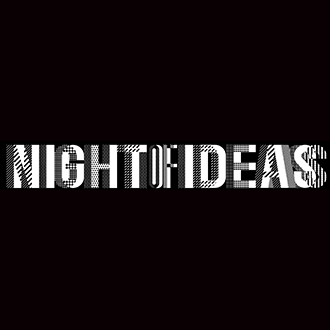
Information
The Covid pandemic seems to have transformed our way of life. A new organization of time and of our social practices has emerged and evolved under the effect of the fluctuations of the restrictions imposed by the sanitary constraints. Our relationship to culture has also been modified: confinement has limited access to many physical cultural goods and has eliminated access to out-of-home culture. Has this new spatio-temporal framework, centered on the home, permanently modified our practice of leisure? Do cultural institutions question their role in society and their relationship with the public considering these changes?
Paleontologist Luis Chiappe of the National History Museum Los Angeles, Regan Pro, Deputy Director of Public Programs and Social Impact at Lucas Museum of Narrative Art and Benno Herz, acting Program Director at the Thomas Mann House will get into conversation about the rebirth of cultural spaces in post-COVID time . Moderated by L.A. Times journalist and author Patt Morrison.
This panel is part of Villa Albertine's 2022 Night of Ideas & presented by the Consulate General of France in Los Angeles. The conversation will take place on May 9, Europe Day, at the Résidence de France, Los Angeles.
Partners
An event by Villa Albertine & the Consulate General of France in Los Angeles.


Planetary thinking
Berlin
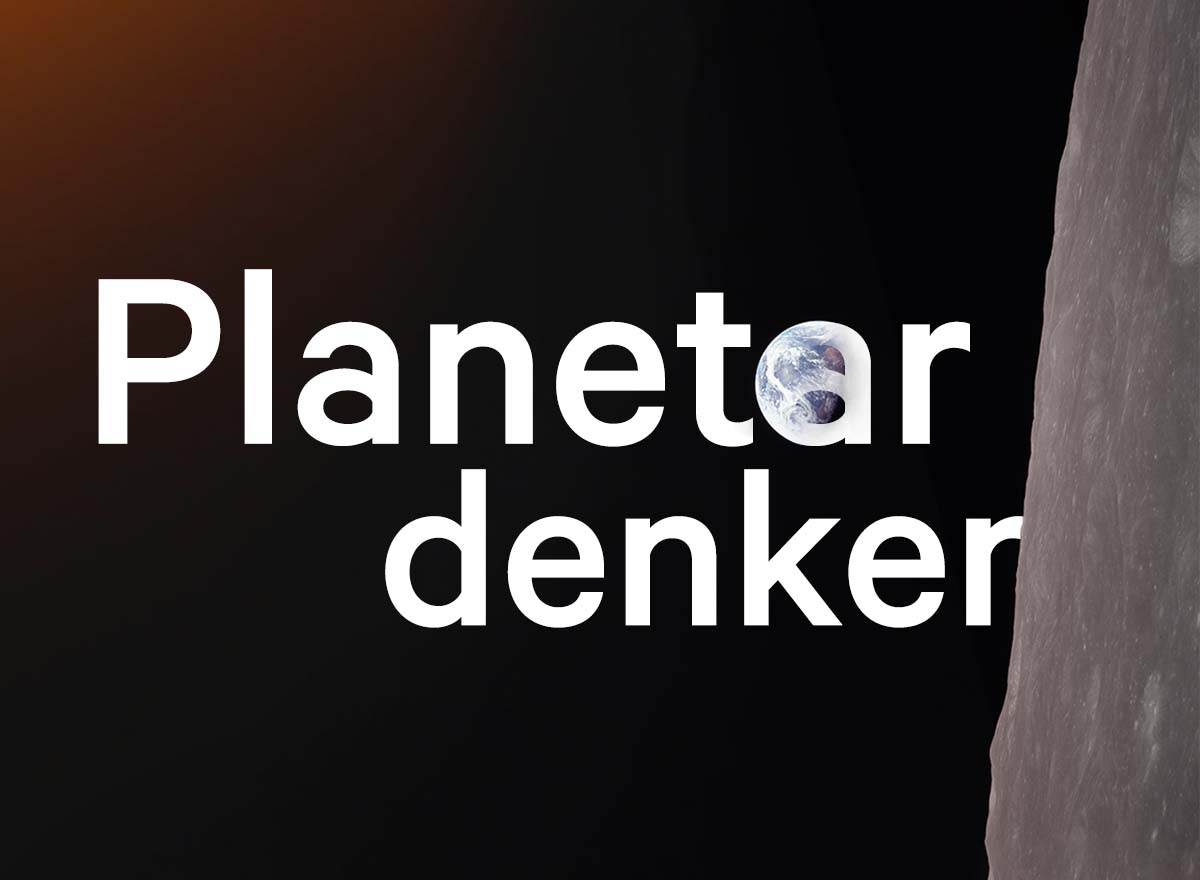
Information
Thinking planetary means taking the earth seriously as a planet. Life on our planet is in danger. In order to be able to change socio-political actions and live sustainability, new scientific findings and thought-provoking impulses are needed.
Political scientist Claus Leggewie, biologist Katrin Böhning-Gaese and theologian Christoph Markschies seit the interaction between the planet and humans at the center of their interest in knowledge and action.
Partners
An event by Villa Aurora & Thomas Mann House and the Berlin-Brandenburg Academy of Sciences Sciences and Humanities as part of Salon Sophie Charlotte. For more information, please visit salon2022.bbaw.de.
Democracy Redesigned - New Forms of Citizens' Participation
Seattle

Information
For the last decade we have observed that representative democracies in Europe and in the United States of America are endangered. A growing segment of the population is not only losing trust into the political elites, but also in democratic institutions. One consequence is the success of populist leaders and their anti-democratic and anti-pluralist politics. Another consequence is that social cohesion is becoming fragile. Polarization is increasing. What can be done? In her talk, Professor Landfried will discuss whether new forms of citizens’ participation, such as citizens' assemblies, are a way of rebuilding trust. Citizens, selected by lot and representative for society, are developing on the basis of an intense and informed debate recommendations for the solution of urgent political problems. Do such new forms of participation have an impact on real politics and do they effectively strengthen democracy?
Goethe Pop Up Seattle and the Thomas Mann House present a conversation on "Democracy Redesigned - New Forms of Citizens' Participation" between Christine Landfried (University of Hamburg and a 2022 Thomas Mann House Los Angeles), Joyce M. Nushaben (Georgetown University) and Mark A. Smith (Department of Political Science, University of Washington).
The event is open to the public. To RSVP please click here.
Participants

Christine Landfried is an emeritus professor of political science at the University of Hamburg and a 2022 Thomas Mann House Fellow. A central focus of her work is on political finance, constitutional jurisdiction, European integration and the role of art in democratic societies. In her studies of the EU, she analyzes the conditions under which cultural, economic and political differences can be a potential for democratic governance. During her fellowship at the Thomas Mann House, Christine Landfried wants to investigate whether new forms of political participation, such as citizen conferences, can help to regain trust in democratic politics.

Joyce Mushaben is an Adjunct Professor in the BMW Center for German and European Studies at Georgetown University and reitred Curators' Distinguished Professor of Comparative Politics at the University of Missouri-St. Louis. Her work focuses on German and European politics, gender, migration, and identity. She is the author of multiple books including Becoming Madam Chancellor: Angel Merkel and the Berlin Republic. Other articles of hers have been featured World Politics, Polity, West European Politics, German Politics & Society, the Journal of Peace Research, Democratization, Citizenship Studies, Femina Politica, and the Journal of Ethnicity & Migration Studies.

Mark Alan Smith is a professor and Associate Chair in the Department of Political Science at the University of Washington. His work focuses on American politics culture, religion, as well as economic issues and the rhetoric of conservatism. Most recently, he is the author of the book Secular Faith: How Culture Has Trumped Religion in American Politics which argues that there is a commonality between all American (secular and religious) moral and political viewpoints. His debut book, American Business and Political Power: Public Opinion, Elections, and Democracy won the Leon Epstein Award from the American Political Science Association.
Attendance Information
To RSVP for this conversation, please click here. Registration is free and open to the public.
Location:
University of Washington, Allen Library. Donald E. Peterson Room (Room 485)
Partners
This event is hosted and supported by the Goethe Pop Up Seattle, the Center for West European Studies/Jean Monnet Center of Excellence in the Henry M. Jackson School of International Studies, the Lee Scheingold Fund, the Department of Political Science, and the Thomas Mann House in Los Angeles.



Jews, Arabs, and Whiteness
Los Angeles

Information
Over the course of many centuries in Europe, Jews were cast as the ultimate Other, both religiously (Christian/Jew) and later “racially” (Aryan/Jew). But what happened when Jews emigrated to the United States, where the White/Black dichotomy predominates? When and why did the majority of American Jews come to be considered “white”—and how is this complicated by the fact that both Blacks and Jews are still the primary targets of “white supremacists”?
Back in Europe, anti-Semitism persists: but following three centuries of colonialism and a half-century of post-colonialism, a White/People of Color dichotomy has become prevalent. How is European “whiteness” different from that in the United States—and who constitute People of Color in contemporary Europe?
A recording of the conversation at the Thomas Mann House will premier on May 27 at 10 a.m. (PT) on our YouTube channel!
Participants

Mohamed Amjahid was born as the son of so-called guest workers in Frankfurt am Main in 1988. He studied political science in Berlin and Cairo. After completing his master's degree Amjahid worked for several big German newspapers. Amjahid is a political journalist, book author and moderator. He was an editor at ZEITmagazin and was awarded among others the Alexander Rhomberg Prize and the Henri Nannen Prize. He received wide attention for his bestsellers Among Whites and Whitewash. Amjahid is a 2022 Fellow at the Thomas Mann House in Los Angeles.
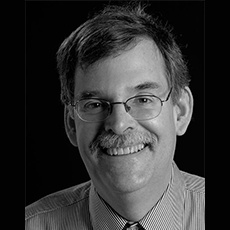
Peter Jelavich is author and Professor of History at the Johns Hopkins University. He specializes in the cultural and intellectual history of Europe since the Enlightenment, with emphasis on Germany. His areas of interest include the interaction of elite and popular culture; the history of mass culture and the media; and the application of cultural and social theories to historical study. He is the author of Munich and Theatrical Modernism: Politics, Playwriting, and Performance, 1890-1914 (1985), Berlin Cabaret (1993), and Berlin Alexanderplatz: Radio, Film, and the Death of Weimar Culture (2006). He currently is writing a book on censorship of the arts in Germany from 1890 to the present.
Watch here
“Against Reductionism: Some Considerations on Scaling”
Stanford University

Information
There seems to be an unbridgeable gap between the large and the small. Although there usually is a scale by means of which large and small phenomena can be compared by measuring, considerable difficulties arise as soon as large things have to be reduced or small things enlarged. lt is only in this transition that it becomes apparent that different laws prevail on a large and small scale and that something that seemed self-evident on a certain interval of a scale suddenly no longer applies. Thus, rescaling is above all an epistemological problem: it is difficult to predict or estimate when qualitative changes will occur, or where theories will lose their explanatory power, or where applications will no longer be functional.
With the help of some examples, Claus Pias will derive three heuristic dichotomies (reductionism/holism, quantity /quality, unity/disunity) that might be useful for a comparative history of scaling problems in different sciences. Furthermore, he shows that an awareness of the limits of scalability was already present when the modern scaling laws were formulated in the 17th century.
Attendance Information
To RSVP for this conversation, please click here. Registration is free and open to the public.
Location:
Stanford University Building 260-252
Reception to follow in Oregon Courtyard
Partners
This is an event by the Division of Literatures, Cultures, and Languages at Stanford University. Sponsored by the Stanford-Leuphana Summer Academy on Humanities and Media.
Exit Exil. Fünf Frauenleben in L.A. (2/5): What would Marlene say?
Radio
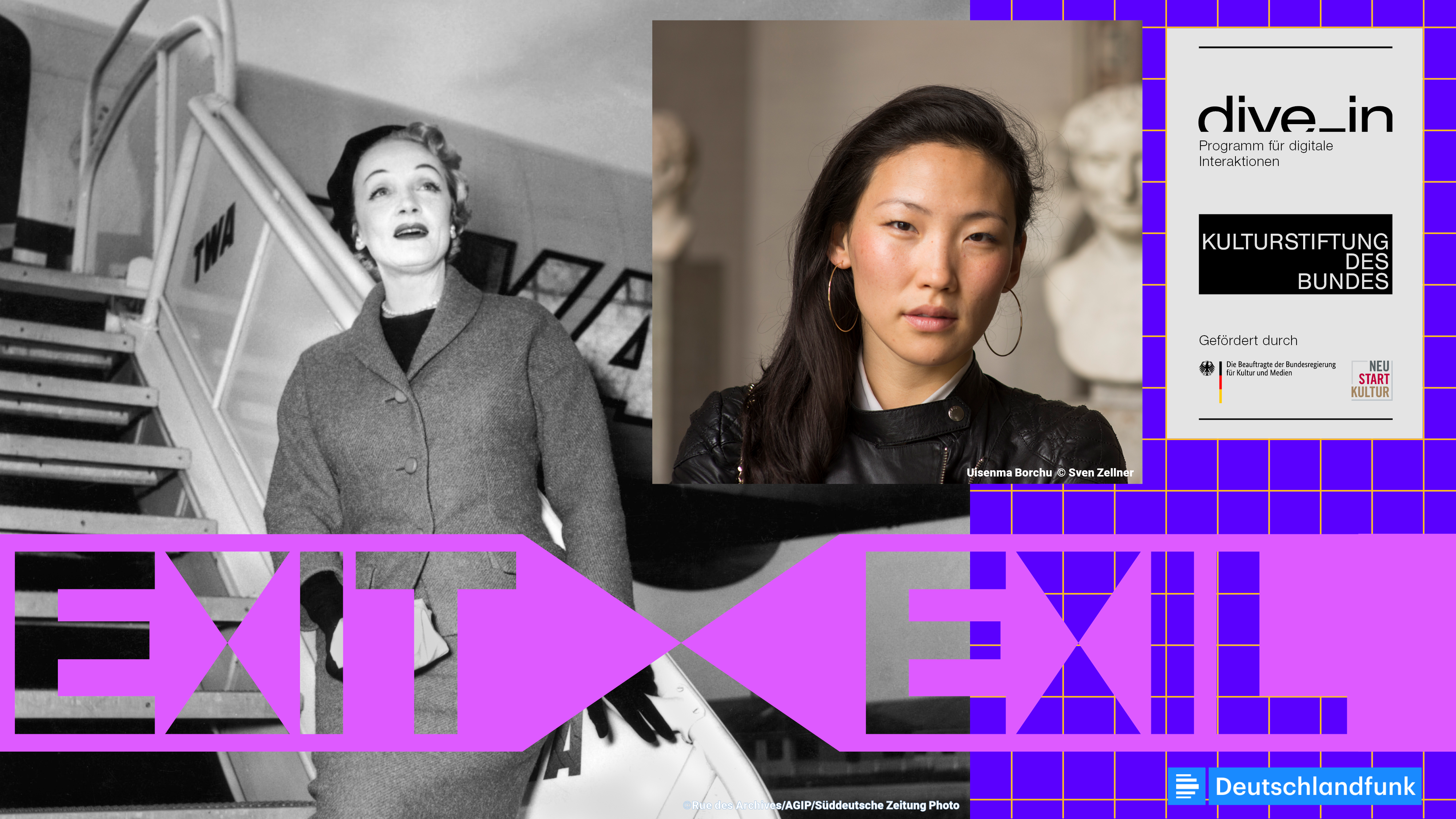
Information
Marlene Dietrich came to Los Angeles for her career and decided not want to return to Germany once the Nazis had seized power. Filmmaker Uisenma Borchu tells the story of the great influence Dietrich had on her own life and work.
Uisenma Borchu and her family immigrated / came to the GDR from Mongolia in the late 1980s. Her memories of that time are marked by racism and the feeling of not belonging. When she was 12 years old, she came across Marlene Dietrich for the first time and was intrigued by her non-conformity.
To this day, she has a soft spot for the film diva who fascinated men and women alike, always remained true to her principles and never gave in to the luring of the National Socialists, even after her career in the US came to a halt.
Together with Étienne Roeder, Villa Aurora Alumnus Uisenma Borchu, explores some rather unknown sides of "the Dietrich" and how she left her mark on Uisenma’s first feature film "Schau mich nicht so an".
After being broadcast on the radio, the radio features "EXIT EXIL. Five Women's Lives in LA" will be presented in our app "Exit Exil," which will be available free of charge in the appshops later this summer. In the coming years, it will develop into a central platform for artistic, journalistic and academic contributions focusing on German-speaking exile in the US. Current debates on migration, identity, etc. will take a prominent place. EXIT EXIL is designed as a network project and will be successively expanded by further content from alumni of the VATMH residency programs and cooperation partners from culture and science.
EXIT EXIL was developed within the framework of "dive in. Program for Digital Interactions" of the German Federal Cultural Foundation, funded by the Federal Government Commissioner for Culture and the Media (BKM) in the NEUSTART KULTUR program.
Partner
A cooperation of Villa Aurora & Thomas Mann House and Deutschlandfunk.
Exit Exil. Fünf Frauenleben in L.A. (3/5): Eva's Ghosts
Radio

Information
Filthy rich heiress, mistress of numerous exiled artists and ghost-seer: Eva Herrmann was the first known female cartoonist in the Western world and an unusual woman for her time. Comic artist Anna Haifisch wants to find out why she has been forgotten.
Just like Marta Feuchtwanger, Eva Herrmann was at the center of social life in exile during the Nazi era. First in Sanary-sur-Mer, later in Los Angeles, she organized soirées and parties, cultivated friendships and love affairs with writers such as Thomas Mann and Aldous Huxley, and generously
supported her friends with money. At the same time, she drew biting caricatures of Bertolt Brecht, Arnold Zweig and her lover Lion Feuchtwanger. Why is this dazzling woman almost forgotten today?
Together with Étienne Roeder, Leipzig-based cartoonist Anna Haifisch, famous for her comic series "The Artist" and resident at Villa Aurora later this year, explores the life of the early jetsetter and discovers surprising parallels.
After being broadcast on the radio, the radio features "EXIT EXIL. Five Women's Lives in LA" will be presented in our app "Exit Exil," which will be available free of charge in the appshops later this summer. In the coming years, it will develop into a central platform for artistic, journalistic and academic contributions focusing on German-speaking exile in the US. Current debates on migration, identity, etc. will take a prominent place. EXIT EXIL is designed as a network project and will be successively expanded by further content from alumni of the VATMH residency programs and cooperation partners from culture and science.
EXIT EXIL was developed within the framework of "dive in. Program for Digital Interactions" of the German Federal Cultural Foundation, funded by the Federal Government Commissioner for Culture and the Media (BKM) in the NEUSTART KULTUR program.
Partner
A cooperation of Villa Aurora & Thomas Mann House and Deutschlandfunk.
The Democratic Potential of Citizens’ Assemblies
Los Angeles | Taper Auditorium L.A. Public Library
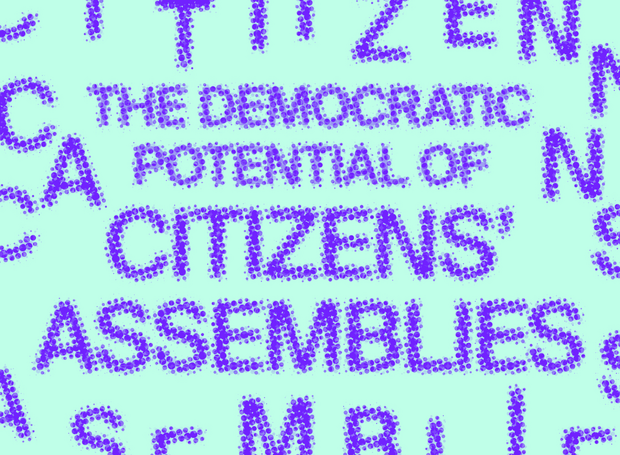
Information
For over a decade, we have observed how representative democracy in Europe as well as in the United States is endangered. A growing segment of the population is not only losing trust in political elites, but also in democratic institutions. Losing trust in democratic governance also means that people are more and more frightened of the future. Can a more active political participation be a solution to regain trust in political institutions? Political scientist and 2022 Thomas Mann Fellow Christine Landfried, political scientist James S. Fishkin (Stanford University) and journalist Joe Mathews will discuss the democratic potential of citizens’ assemblies and how they can help renew the democratic project on both sides of the Atlantic. The conversation will be facilitated by Dawn Nakagawa, Executive Vice President of the Berggruen Institute.
New forms of citizens’ participation, such as citizens’ assemblies, are a way to strengthen democracy. Groups of randomly selected citizens develop proposals for the solution of political problems and conflicts on the basis of an informed deliberation. In California, for example, the first municipal citizens’ assembly was just established in the city of Petaluma. Citizens will make recommendations for the future use of the city’s fairground – a contentious issue for many years. In the European Union, 800 citizens recently reflected on the future of Europe and exchanged their ideas with politicians. This “Conference on the Future of Europe” proposed far-reaching reforms that will make necessary treaty changes. Thus, changes that had been avoided by politicians for a long time are now on the agenda. The question is: can such assemblies succeed in counteracting the erosion of representative democracy?
This event will take place at the Los Angeles Central Libary's Taper Auditorium on June 28, 6 p.m. Free admission. A recording of the discussion has been posted to our YouTube channel!
Participants
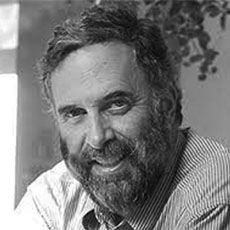
James S. Fishkin holds the Janet M. Peck Chair in International Communication at Stanford University where he is Professor of Communication, Professor of Political Science and Director of the Center for Deliberative Democracy. Fishkin is best known for developing the practice of “Deliberative Polling,” which is a type of public consultation that employs random samples of the citizenry to explore how opinions would change if they were more informed. His work on deliberative democracy has stimulated more than 100 deliberative polls in 28 countries around the world. In 2019, he initiated “America in One Room”, a gathering of 500 American voters selected to form an accurate, representative sample of the entire American electorate in all its political, cultural, and demographic diversity.

Christine Landfried is a Professor emerita of Political Science at the University of Hamburg. Visiting professorships have led her to Sciences Po in Paris, the University of California at Berkeley and the Yale Law School. From 2014 to 2016 she held the Max Weber Chair at New York University. Her research focuses on the political role of constitutional courts, European integration and the role of art in democratic societies. In her studies of the EU she analyzes the conditions under which cultural, economic and political difference can be a potential for democratic governance. She is sharing the results of her research by writing for newspapers such as the Frankfurter Allgemeine Zeitung and the Neue Zürcher Zeitung as well as for the Verfassungsblog. Christine Landfried is a 2022 Thomas Mann Fellow.

Joe Mathews is California and innovation editor at Zocalo Public Square. He was a reporter for the Los Angeles Times, the Wall Street Journal, and the Baltimore Sun. He is co-author of California Crackup: How Reform Broke the Golden State and How We Can Fix It and author of The People’s Machine: Arnold Schwarzenegger and the Rise of Blockbuster Democracy. He is co-president of the Global Forum on Modern Direct Democracy. Joe also serves as a professor of practice at Arizona State University’s School of Public Affairs, as fellow at ASU’s Center for Social Cohesion, and as co-president, with Bruno Kaufmann, of the Global Forum on Modern Direct Democracy – which brings together academics, journalists, activists and other experts on initiative, referenda, and new forms of deliberative and participatory democracy.

Dawn Nakagawa is the Executive Vice President of the Berggruen Institute, which seeks to deepen our understanding of the great transformations of our time and develop social and political institutions adapted to them. She is co-director of the Future of Democracy program area and oversees special projects such as the Renovating Democracy for the Digital Society project. She holds an MBA from the University of Chicago Booth School of Business and an undergraduate degree in Political Science from McGill University in Canada and sits on the advisory board of Blueprints and the Values Schools charter organization, Think Long Committee, Inc.
Watch here
Partners
An event by the Thomas Mann House in collaboration with the Los Angeles Public Library and Zocalo Public Square.


Exit Exil. Fünf Frauenleben in L.A. (4/5): The life divided
Radio

Information
Fritzi Massary was the most famous operetta singer of her time. But then came the Nazis, her flight to Los Angeles and oblivion. Time to rediscover her story together with composer Farahnaz Hatam.
A good 100 years ago, the young Austrian Fritzi Massary was a star on the stages of Berlin. She was the face of Berlin's Metropol Theater, and her frivolous song "Why shouldn't a woman have an affair" was a hit. But even before Hitler came to power, SA people disrupted her performances with chants.
After her escape in 1932, she lived in Los Angeles in the neighborhood of the German exile bohemians around Thomas Mann and Marta and Lion Feuchtwanger. But even though she was awarded the Federal Cross of Merit in 1957, her career was over.
Together with composer and Villa Aurora fellow Farahnaz Hatam, Étienne Roeder visits the site of her great successes in Berlin - to discover that the spirit of "the Massary" is still in the air there.
After being broadcast on the radio, the radio features "EXIT EXIL. Five Women's Lives in LA" will be presented in our app "Exit Exil," which will be available free of charge in the appshops later this summer. In the coming years, it will develop into a central platform for artistic, journalistic and academic contributions focusing on German-speaking exile in the US. Current debates on migration, identity, etc. will take a prominent place. EXIT EXIL is designed as a network project and will be successively expanded by further content from alumni of the VATMH residency programs and cooperation partners from culture and science.
EXIT EXIL was developed within the framework of "dive in. Program for Digital Interactions" of the German Federal Cultural Foundation, funded by the Federal Government Commissioner for Culture and the Media (BKM) in the NEUSTART KULTUR program.
Partner
A cooperation of Villa Aurora & Thomas Mann House and Deutschlandfunk.
Exit Exil. Fünf Frauenleben in L.A. (5/5): The Misjudged
Radio

Information
Heinrich Mann's wife Nelly Kröger came from a humble background. Exiled in L.A., she felt all the contempt of the upper-middle-class intellectual Mann-family. Étienne Roeder follows her footsteps in Los Angeles.
A fairy tale-like story: A bar girl falls in love with a rich, respectable man. They marry and could be happy together. But the uneducated and penniless Nelly Kroeger was never accepted by her husband's famous family.
Without his wife, Heinrich Mann would probably never have survived the grueling escape to France and later America. Lonely and desperate, she took her own life in 1944.
In the last episode of the series "Exit Exile" Étienne Roeder travels to L.A. to learn more about this tragic life and to personally visit the places of the past episodes.
After being broadcast on the radio, the radio features "EXIT EXIL. Five Women's Lives in LA" will be presented in our app "Exit Exil," which will be available free of charge in the appshops later this summer. In the coming years, it will develop into a central platform for artistic, journalistic and academic contributions focusing on German-speaking exile in the US. Current debates on migration, identity, etc. will take a prominent place. EXIT EXIL is designed as a network project and will be successively expanded by further content from alumni of the VATMH residency programs and cooperation partners from culture and science.
EXIT EXIL was developed within the framework of "dive in. Program for Digital Interactions" of the German Federal Cultural Foundation, funded by the Federal Government Commissioner for Culture and the Media (BKM) in the NEUSTART KULTUR program.
Partner
A cooperation of Villa Aurora & Thomas Mann House and Deutschlandfunk.
Machines of Mistrust – The Fabric of Digital Cultures
Los Angeles (Thomas Mann House)

Information
There is a paradox at the heart of the ongoing digital revolution: On the one hand, we have more information at our hands than ever, yet, it seems more and more impossible to even agree on fundamental facts in partisan conflicts. In today’s digital media ecosphere, problems such as so-called echo chambers, a lack of transparency when it comes to the fact-checking of legitimate sources and the amplification of radical minority opinions by intransparent algorithms have led to fading trust in both traditional media systems as well as social media platforms. How did the very technologies that many thought would enhance our faith in one another in fact came to corrode it? Common ideas of trust in science and technology were constructed differently over the centuries and communicated through ever changing constellations of media – from personal witnessing to peer reviewed journal articles to Twitter’s news feed. Can we potentially draw conclusions for the future by looking at our historical relationship to technologies and digital media?
During his time at the Thomas Mann House, Claus Pias, Professor of History and Epistemology of Media, explores the beginnings of narratives around the digital age and its historiographical, economic, scientific and ideologic purposes. Together with Soraya de Chadarevian, Professor in the Department of History and the Institute for Society and Genetics at UCLA, as well as Fred Turner, Professor of Communication at Stanford University, they will discuss issues around our conceptions of today’s media environments.
The conversation will be moderated by Ulrich Johannes Schneider, a 2022 Thomas Mann Fellow and Historian of Knowledge.
This event will take place at the Thomas Mann House and is by invitation only.
Participants

Soraya de Chadarevian is Professor in the Department of History and the Institute for Society and Genetics at UCLA. She is a historian of science, technology and medicine with a background in biology and philosophy. Her main area of interest are the technical and visual practices of the life and biomedical sciences in the twentieth and twenty-first century. She came to UCLA from the University of Cambridge. Her research has been supported by numerous grants, including most recently by a scholar award from the National Science Foundation. Her most recent monograph Heredity under the Microscope: Chromosomes and the Study of the Human Genome (2020) is a study of the postwar history of human heredity, told from the vantage point of chromosomes and the visual evidence they provided.

Fred Turner is the Harry and Norman Chandler Professor of Communication at Stanford University. He is the author of books such as Seeing Silicon Valley: Life inside a Fraying America (with Mary Beth Meehan); L’Usage de L’Art dans la Silicon Valley; The Democratic Surround: Multimedia and American Liberalism from World War II to the Psychedelic Sixties, and From Counterculture to Cyberculture: Stewart Brand, the Whole Earth Network, and the Rise of Digital Utopianism. Before coming to Stanford, he taught communication at Harvard’s John F. Kennedy School of Government and MIT’s Sloan School of Management. He also worked for ten years as a journalist. Turner has written for newspapers and magazines ranging from the Boston Globe Sunday Magazine to Harper’s.

Claus Pias studied electrical engineering, art history, German literature and philosophy in Bonn and has taught at the Universities of Bochum, Essen, Vienna and Princeton. He is professor of History and Epistemology of Media at Leuphana University Lüneburg and director of the Center for Digital Cultures and the Institute for Advanced Studies in Media Cultures of Computer Simulation. His research focuses on the history of media in science, technology and art. He is currently working on the temporal and epochal semantics of digital cultures and their Cold War beginnings. Among other publications, Pias is the author of books such as Computer Game Worlds and The Oxford Handbook of Media, Technology, and Organization, with Robin Holt and Timon Beyes. Claus Pias is a 2022 Thomas Mann Fellow.
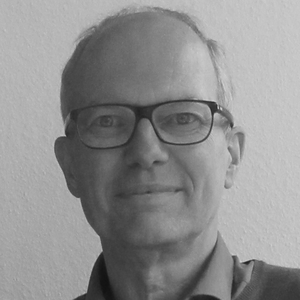
Ulrich Johannes Schneider is a librarian and historian of knowledge. Since 2005, he has been the director of the Leipzig University Library. From 1999 to 2005 Ulrich Johannes Schneider was head of the department of research projects and research planning at the Herzog August Bibliothek in Wolfenbüttel. Since 2004, he has been a professor of philosophy at the Institute for Cultural Studies of Leipzig University. Schneider’s multi-year project of a global library history of modernity examines the social status of libraries in different social contexts on the basis of library use. Ulrich Johannes Schneider is a 2022 Thomas Mann Fellow.
Book Launch: Thomas Mann's Los Angeles - Stories from Exile 1940—1952
Los Angeles

Information
Thomas Mann’s Los Angeles: Stories from Exile 1940–1952 paints a vivid portrait of Mann’s experience through beautiful illustrations and about seventy brief, entertaining essays on literature, film, music, leisure, political thought, and more. As Mann and fellow émigrés used their skills to fight Fascism in their homeland, they also embraced and enriched the culture of their adopted city.
The Manns hosted a who’s who of social, cultural, and political figures in their modernist home, designed by Case Study House architect J.R. Davidson. Their circle included writers Bertolt Brecht, Vicki Baum, Christopher Isherwood, and Aldous Huxley; actor/screenwriter/activist Salka Viertel; Hollywood luminaries Max Reinhardt and Ernst Lubitsch; and musicians such as Igor Stravinsky and Arnold Schoenberg.
Thomas Mann’s Los Angeles conveys the richness and complexity of Mann’s time in the city through the people and places that shaped it, connecting them to Mann, each other, and the present.
The book, which is available in bookstores and to order, is published by Angel City Press together with the Thomas Mann House. On the occasion of its launch, editors Nikolai Blaumer and Benno Herz will moderate a conversation with three of the authors: professor for German Tobias Boes (University of Notre Dame), book critic and author Donna Rifkind, and music critic Alex Ross.
This event will take place at the Thomas Mann House and is by invitation only.
Participants

Tobias Boes is the chair of the Department of German and Russian Languages and Literatures at the University of Notre Dame. His research focuses on the circulation of German culture in the world, and on the question of how German national identity is shaped by global forces. In his most recent and critically acclaimed book Thomas Mann’s War: Literature, Politics, and the World Republic of Letters, he traces how Thomas Mann became one of America’s most prominent anti-fascists.

Donna Rifkind is a book critic and author. She has published reviews in The Wall Street Journal and The Washington Post. Her critically acclaimed book The Sun and Her Stars: Salka Viertel and Hitler's Exiles in the Golden Age of Hollywood tells the little-known story of screenwriter Salka Viertel and was a National Jewish Book Award Finalist.

Alex Ross has been the music critic of The New Yorker since 1996. His first book, The Rest Is Noise: Listening to the Twentieth Century, won a National Book Critics Circle Award and was a finalist for the Pulitzer Prize. His second book, Listen to This, is a collection of essays. His latest book is Wagnerism: Art and Politics in the Shadow of Music, an account of Wagner’s vast cultural impact. He has written often about Thomas Mann and the émigré community in L.A. for The New Yorker.
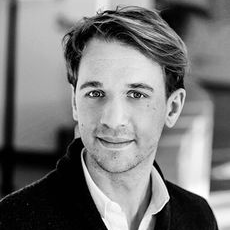
Nikolai Blaumer was the Program Director at the Thomas Mann House Los Angeles from its initial opening in 2018 until May 2022. Blaumer earned a doctorate in philosophy from Ludwig Maximilian University of Munich (LMU) and taught at LMU, Bauhaus University Weimar and at UCLA, Los Angeles. Since 2014, he has been working for the Goethe-Institut’s Department of Culture. He is co-editor of the book Teilen und Tauschen (S. Fischer Verlag, 2017).
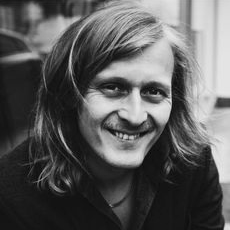
Benno Herz is the current Program Director at the Thomas Mann House Los Angeles. He worked in the online communication division at the Städel Museum Frankfurt, Germany, before joining the Thomas Mann House. Prior to this, he studied Theater, Film and Media Studies at the Goethe University Frankfurt focusing on digital aesthetics and interface theory. In 2021 and 2022 he taught a Digital Humanities class on European Exile at University of California, Los Angeles.
Partner
An event by the Thomas Mann House in collaboration with Angel City Press.
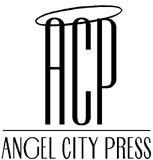
Communicating Across Political Fault Lines – Reaching the 'Unreachable'
Los Angeles
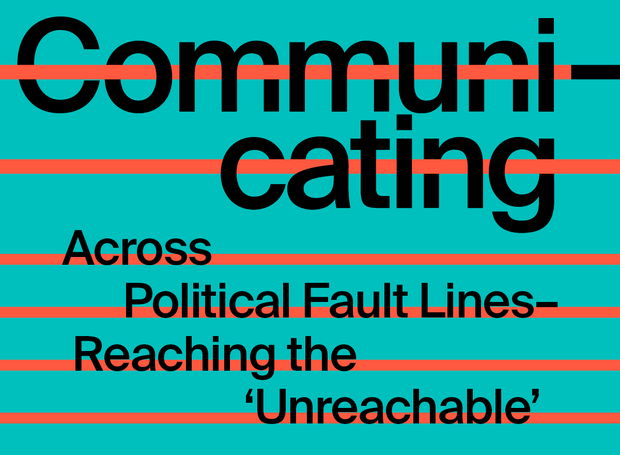
Information
In recent years, on both sides of the Atlantic, we have observed the rise of populism along with growing levels of polarization and radicalization. Democracies are challenged by disinformation and online social networks have reshaped the way in which public opinion forms. Democratic societies experience a lack of dialogue between parts of society. At the Thomas Mann House, Martin Kaplan, Professor of Entertainment, Media and Society at the University of Southern California's Annenberg School for Communication and Journalism, and 2022 Thomas Mann Fellow Andreas Nitsche get into conversation about what can be done to re-enable dialogue between segregated parts of society taking differences and commonalities between Germany and the United States into account. They explore the nexus between quality journalism and the prospects of large scale deliberation. They also address (new) communication strategies and their ethical implications.
In the United States, opposing partisans often see each other as alien, untrustworthy, and iniquitous. Oftentimes, there is no agreement on facts. In many cases, trust in science is diminishing. On the other hand, independent journalism is still a stronghold of democracy. At the same time, deliberation can be instrumental in building mutual understanding and trust. While deliberation has essentially remained a prerogative of small groups, the challenges of the digital age arguably have to be addressed at scale by a strong digital democracy. At the Thomas Mann House, the two will discuss how new forms of mass communication and upscaling online deliberation can improve democratic processes and impact society at large. What are effective ways for larger groups of citizens (or an entire society) to productively deliberate? How can news media and the entertainment industry contribute to an informed society capable of such deliberation?
Participants

Martin Kaplan holds the Norman Lear Chair in Entertainment, Media and Society at the USC Annenberg School for Communication and Journalism. He is the Founding Director of the school’s Norman Lear Center, whose mission is to study and shape the impact of media and entertainment on society. His research interests include campaign coverage on local TV news; the effects of public health messages in entertainment; the use of narrative to communicate science; and the impact of the attention economy on democracy. Kaplan comes to USC from Washington and Hollywood: He was Vice President Walter Mondale’s chief speechwriter and deputy presidential campaign manager, and at Disney, he was a studio executive and a writer and producer of feature films, including The Distinguished Gentleman starring Eddie Murphy.
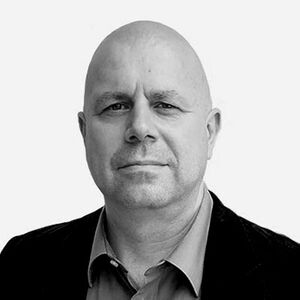
Andreas Nitsche is a German Computer Scientist with research interest in democratic self organization. His multidisciplinary work focuses on the opportunities and risks of technology for democracy, social cohesion, inclusion and conflict management. In international events, he delivered talks and conducted workshops on the philosophical, political and technological aspects of deliberation and credible decision making. He is a board member of the Berlin based Association for Interactive Democracy and co-founder of the LiquidFeedback project, a conceptual framework for large scale deliberation and decision making and its implementation in open source code. Andreas Nitsche is a 2022 Thomas Mann Fellow.
Partners
An event by the Thomas Mann House in collaboration with The Norman Lear Center at the USC Annenberg School for Communication and the Association for Interactive Democracy.


Thomas Mann's Los Angeles
Vroman's Bookstore (695 E. Colorado St. Pasadena, CA 91101)

Information
The book Thomas Mann's Los Angeles: Stories from Exile 1940-1952 (Angel City Press) explores the Mann families' connections to the city and the network of intellectuals they found there, including writers such as Vicki Baum and Aldous Huxley and musicians such as Alma Mahler and Arnold Schoenberg. Short texts accompanied by maps, a rich selection of historic images, contemporary photographs and vivid anecdotes guide the reader through this fascinating community. After fleeing Nazi Germany, writer and Nobel Prize winner Thomas Mann found refuge for himself and his family in the Pacific Palisades, a quiet residential neighborhood in Los Angeles between Santa Monica and the Pacific Ocean. Mann was one of many European intellectuals who fled to Los Angeles, forming a community known as "Weimar on the Pacific."
The conversation will highlight Michaela Ullmann's chapter on Heinrich and Nelly Mann and their hardships in Los Angeles. They will discuss how the idea of the book came to be and what the stories of the 1940s exile community might reveal to us today.
The event will take place at Vroman's Bookstore, the oldest and largest independent bookstore in Southern California on August 24th, 7p.m.
Free admission. Learn more here!
Participants

Michaela Ullmann is the Exile Studies Librarian and Instruction Coordinator at USC Libraries’ Special Collections. She holds an M.A. in Cultural Anthropology and Archaeology from University of Bonn (Germany), and an M.A. in Library and Information Sciences from San José State University. As a faculty member of the USC Libraries, Michaela oversees the Feuchtwanger Memorial Library, home to Lion Feuchtwanger’s invaluable 30,000 volume rare book collection and papers by German-speaking intellectuals and artists who fled Nazi-Germany and came to Los Angeles in the 1930s and early 1940s. She has published widely on the topic of German-speaking exiles in Los Angeles and is a co-editor of Lion Feuchtwanger's diaries (“Lion Feuchtwanger. Ein möglichst intensives Leben. Die Tagebücher”. Aufbau Verlag Berlin. 2018)

Benno Herz is the Program Director at the Thomas Mann House Los Angeles. He worked in the online communication division at the Städel Museum Frankfurt, Germany, before joining the Thomas Mann House. Prior to this, he studied Theater, Film and Media Studies at the Goethe University Frankfurt focusing on digital aesthetics and interface theory. In 2021 and 2022, he taught a Digital Humanities class on European Exile at University of California, Los Angeles. He is co-editor and co-author of the publication Thomas Mann's Los Angeles: Stories from Exile 1940-1952 (Angel City Press, 2022).
Partner
An Event by Vroman's Bookstore.

Transatlantic Media Forum - Democracy Disputed: Ever More Divided?
New York, NY

Information
Whether it is the war in Ukraine, Covid-19, or climate change -- crises seem to have become the norm in our globalized, digitally-connected world. This state of global uncertainty is accompanied by the widespread perception of an increasingly divided society. According to critical observers, this division manifests itself primarily in the ever-increasing polarization of public discourse.
The "Transatlantic Media Forum" is a one-day German-American gathering of fifteen renowned experts and journalists in New York City by 1014 and the Institute for Media and Communication Policy (IfM), in collaboration with the M100 Sanssouci Colloquium and with generous support from Stiftung Mercator. Across three "Strategic Roundtables", the format allows for in-depth deliberations wherein we will discuss the media and techno-economic mechanisms that cause and perpetuate each of these crises - regardless of their respective content. How can we achieve resilience under these conditions?
Christoph Bieber, research professor at the Center for Advanced Internet Studies, Bochum, Germany will deliver his opening remarks on Division everywhere? at the conference on September 8th at 11.10 a.m. (ET).
For the full program and more information, go to the conference website.
Parters
The event is organized by 1014 and the Institute for Media and Communication Policy (IfM), in collaboration with the M100 Sanssouci Colloquium and with generous support from Stiftung Mercator.

On the Dimensions of Public Interest Design
Online

Information
The work of city planners and architects worldwide has come under pressure. A lack of affordable housing, climate change and migrant movement challenge the traditional image of the architect as designer of objects in the built environment.
The term Public Interest Design expands the practice of architecture and design towards a multidimensional process that addresses issues such as disaster preparedness and recovery, scarcity of food and water as well as shelter. During her Fellowship at the Thomas Mann House, the architecture journalist and author Friederike Meyer explores how planning structures and strategies can support new forms of living together in changing heterogenous societies.
Sergio Palleroni, director of the Center for Public Interest Design in the School of Architecture at Portland State University and Thomas Mann Fellow Friederike Meyer discuss how architects and planners can re-engage with society to meet the needs of increasingly diverse communities and how public interest design can create a healthy, resilient and sustainable living environment.
A recording of the conversation will premier on our YouTube channel on 10th of September at 10 am (PT).
Participants

Friederike Meyer studied architecture at the RWTH Aachen and at the University of Washington in Seattle and was trained at the Evangelische Journalistenschule in Berlin. Today, she works as an architecture journalist in Berlin exploring the intersection of architecture, urban planning and society. From 2000 to 2017 she was editor of the architecture journal Bauwelt; for several years she has been working as an author, moderator and lecturer for architectural communication. Since 2017 Friederike Meyer has been editor-in-chief of BauNetz Meldungen. Together with Doris Kleilein she coedited “Die Stadt nach Corona” and “Post-pandemic Urbanism” published at Jovis, 2021.

Sergio Palleroni is Professor and director of the Center for Public Interest Design in the School of Architecture at Portland State University and co-founder of PSU's Homelessness Research & Action Collaborative. He also serves as a Senior Fellow of the Institute for Sustainable Solutions and is a founding member and faculty of the federally funded Green Building Research Lab at Portland State University. He received his M.S. in Architectural Studies from the Massachusetts Institute of Technology. His research and fieldwork for the last two decades has been in the methods of integrating sustainable practices to improve the lives of underserved communities worldwide.
Televised Democracy: Media and Politics in an Attention Economy
Los Angeles, Thomas Mann House

Information
In his recent op-ed piece for the New York Times, journalist Ezra Klein warns that when the border between entertainment and political discourse becomes blurred, entertainers might be the only ones able to fulfill our expectations for politicians and coverage of political events might become “entertainment packages.” Prominent examples can be found throughout history and across political camps, such as the presentation and setting of Volodymir Zelensky’s video addresses, Donald Trump’s background in reality TV, and the serial style and format of the recent news coverage of the January 6th hearings. In an attention economy, methods of production and writing in audiovisual media leave their mark on the way political debate is presented to the public. From the first televised presidential debates to famous actors-turned-politicians such as Ronald Reagan or Arnold Schwarzenegger, media technologies and their use within the entertainment industry have always shaped and influenced public discourse and the way in which politicians have made use of these media environments.
2022 Thomas Mann Fellow Christoph Bieber, Professor for Political Science at the Center for Advanced Internet Studies in Bochum, and U.S. television producer and writer Stephen Engel will engage in a conversation about how political debate is narrated and presented in a rapidly changing political public sphere. Political actors rely on routines, formats, and narratives originally developed in entertainment media, not only during campaign season, but also within everyday political processes such as plenary sessions or committee hearings. By analyzing and discussing different media formats and historic examples, the discussion will explore the benefits and pitfalls of the entanglements between the entertainment industry and political discourse. The conversation will be facilitated by Lorraine Ali, television critic at the Los Angeles Times and award-winning journalist, who has written in publications ranging from the New York Times to Rolling Stone.
In person event at the Thomas Mann House. By invitation only.
Participants

Lorraine Ali is television critic of the Los Angeles Times. Previously, she was a senior writer for the Calendar section where she covered culture at large, entertainment and American Muslim issues. Ali is an award-winning journalist and Los Angeles native who has written in publications ranging from the New York Times to Rolling Stone and GQ. She was formerly The Times’ music editor and before that, a senior writer and music critic with Newsweek magazine. Her writing awards include Best Online Feature from the New York Association of Black Journalists in 2007, an Excellence in Journalism Award in 2002 from the National Arab Journalists Association. In 1996, she won Best National Feature Story honors at the Music Journalism Awards.

Christoph Bieber is Professor of Political Science at the NRW School of Governance, University of Duisburg-Essen, Germany. His main area of research is ethics in political management and society. Bieber has published widely on the effects of online communication for political actors, a special focus is addressing the effects of digitalization for the U.S. political system. Since 2018, he has been delegated to the Center for Advanced Internet Studies (CAIS) in Bochum, where as a research professor he directs the program “Digital Democratic Innovations“ that runs from 2021 until 2026. On Twitter he is known as @drbieber.

Stephen Engel is a U.S. television producer and writer. A graduate of Tufts University, Engel continued his education at NYU and earned a law degree. While working as an attorney, he spent his nights and weekends writing screenplays, leading to assignments for producers such as Steven Spielberg and Joel Silver. Engel went on to write for many TV series, including The Big Bang Theory, Just Shoot Me, Mad About You and Dream On. Engel also created and executive produced CBS’s Work With Me, starring Nancy Travis and Kevin Pollak; NBC’s Inside Schwartz, starring Breckin Meyer; and ABC’s The Big House, starring Kevin Hart. In addition, he teaches TV writing at the UCLA School of Theater, Film & Television.
Watch here
The Politics of Memory: Contested Cultures of Remembrance
Wende Museum (10808 Culver Blvd., Culver City, CA 90230)

Information
"Memory culture" (German Erinnerungskultur) is a central concept in current debates about the ways Germans remember, commemorate, and historicize the era of National Socialism and its aftermath. The term relates to the question whether Germany has largely accepted responsibility for and learned from its past crimes. From school education and memorials to art monuments, films and public discourses, the idea of an active and successful memory culture plays an important role in contemporary German discourses, for instance about a post-Berlin Wall united identity for Germany after 1989. While many international voices praise Germany’s self-reflexive commemoration of its national trauma, a new generation of German-Jewish artists and intellectuals raise an important point of critique: What if Germany’s culture of memory is merely a "theater of reconciliation"? Whom does this form of remembrance actually serve, and to what end?
German poet Max Czollek, who writes about contemporary Jewish life in Germany, argues that German memory culture created a "symbolic Jew" as a counterfigure to a German "we." According to him, Germany is mistaking remembrance for reconciliation, with the recent rise of racist and anti-Semitic violence and right-wing populism as a consequence. For Czollek, a functioning and productive culture of memory must confront its “fantasies of homogeneity,” question concepts of national greatness, and include contemporary minority voices into its discourse.
Yasemin Yildiz, Professor at the Department of European Languages and Transcultural Studies at the University of California, Los Angeles, engages with questions of German memory culture from another angle. She is currently working on the book project Memory Citizenship: Migrant Archives of Holocaust Remembrance, co-authored with Michael Rothberg, in which she explores the effect of transnational migration on German cultural memory relating to National Socialism, the Holocaust, and World War II, opening up new ways of conceptualizing the relationship between memory and migration at present.
Max Czollek and Yasemin Yildiz will engage in a conversation around cultures of remembrance: What new perspectives and critiques do minority discourses offer on the questions and debates surrounding contemporary German memory culture? And what is the takeaway for those of us in the United States? How can these discussions inform our local debates and controversies about commemoration and memory practices? The conversation will be moderated by Joes Segal, Chief Curator and Director of Programming at The Wende Museum.
Participants

Max Czollek is a German lyric-poet, writer and stage performer. In 2012, he received a degree in political science from the Technical University of Berlin. In 2016, he completed his doctorate studies at the Center for Research on Antisemitism. Since 2009, Czollek has been a member of poetry collective G13, which has published books and organized lectures. His essay collection Desintegriert Euch (“De-Integrate!”) transformed the debate about the integration of minorities in Germany when it appeared in 2018. His perspective on the roles of contemporary Jews in German society and its “theater of memory” struck a nerve not just among Jews, but other minority groups as well.

Yasemin Yildiz is Associate Professor of German and Comparative Literature at the University of California, Los Angeles. Her research areas include Twentieth- and Twenty-First Century German Literature and Culture; Literature of Migration; Turkish-German Literature; German-Jewish Literature; Literary Multilingualism and Translation Studies; Gender Studies; Memory Studies; and Holocaust Studies. Prof. Yildiz is the author of Beyond the Mother Tongue: The Postmonolingual Condition (2012). Her current book project Memory Citizenship: Migrant Archives of Holocaust Remembrance, co-authored with Michael Rothberg, assembles and analyzes a wide range of memory work by Germany-based immigrant writers, artists, and activists relating to National Socialism, the Holocaust, and World War II.
Partner
The Event is a collaboration between the Wende Museum & the Thomas Mann House.
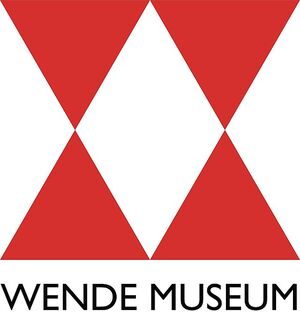
Thomas Mann's Los Angeles: Stories From Exile 1940-1952
Village Well Books & Coffee (9900 Culver Blvd. #1B Culver City CA USA, 90232)

Information
Thomas Mann’s Los Angeles: Stories from Exile 1940–1952 explores Mann’s relationships to the city and the network he found there: writers including Bertolt Brecht, Christopher Isherwood, Aldous Huxley, and a young Susan Sontag; Hollywood luminaries like Jack Warner, Carl Laemmle, Max Reinhardt, and Ernst Lubitsch; and musicians such as Igor Stravinsky and Arnold Schoenberg. In addition to the cultural and political life of the city, Thomas Mann’s Los Angeles explores how the formidable Mann adapted to life as an Angeleno, enjoying the city’s many beaches, dining out at the Brown Derby, visiting the Hollywood Bowl, and taking walks through the neighborhood with his poodle, Niko. Short essays on each topic, written by forty-three experts on the subject, provide fascinating insight into Mann’s life in exile.
The conversation will highlight Claudia Gordon's chapter on Lion Feuchtwanger and his relationship with Thomas Mann and other fellow exiles. Together with co-editor and co-athor Benno Herz and moderated by Thomas Aujero Small, they will discuss the role that the Thomas Mann House and the Villa Aurora as the former exile homes of the Mann and Feuchtwanger families continue to play and what the stories of the 1940s exile community might reveal to us today.
Panelists

Claudia Suhr Gordon studied Egyptology, Sociology and Coptic Studies at the University of Göttingen, Germany where she earned her Ph.D. with a dissertation on Ancient Egyptian first-person narratives. She has worked as an archaeologist in Luxor, Egypt and currently serves as Director of Villa Aurora, an artist residency in the former exile home of writer Lion Feuchtwanger and his wife Marta. In 2016, Villa Aurora was entrusted with the administration of the Thomas Mann House, where Claudia also serves as Head of Administration.

Benno Herz is Program Director at the Thomas Mann House, Los Angeles. He studied Theater, Film and Media Studies at the Goethe University Frankfurt and completed his M.A. with a focus on new social media aesthetics and interface theory. He is co-editor and co-author of the publication Thomas Mann's Los Angeles: Stories from Exile 1940-1952 (Angel City Press, 2022). Herz taught a digital humanities class on European exile at University of California, Los Angeles.

Thomas Aujero Small is the CEO of Culver City Forward, a non-profit public-private partnership that brings business, government, and the community together to inspire and pursue innovative urban solutions to the most crucial issues in our region. He was the 2018 Mayor of Culver City and served on the City Council from 2016 to 2020. Culver City Forward Motion, part of his 2018 State of the City presentation, sets forth a vision for the future of Culver City. A long-time writer and consultant in architecture and urban planning, he serves on the Mobility Committee of the Urban Land Institute Los Angeles and chairs the LA METRO Sustainability Council. Thomas Aujero Small is on the advisory board of the Thomas Mann House.
Partner
The Event is organized by Village Well Books & Coffee

Interlacing Threads: Reading Anni Albers Together. Convened by Karis Medina & Rosario Talevi
Los Angeles (Thomas Mann House)

Information
Anni Albers (1899–1994) was a textile designer, weaver, writer, and printmaker who pioneered new possibilities for textiles as art, both as purely pictorial constructions and as functional objects. In 1922, she enrolled in the Bauhaus in Weimar, Germany, a then-new school that transformed modern design and emphasized the connection between artists, architects, and craftspeople. There Anni met a young artist and teacher, Josef Albers (1888–1976) who in 1925 would become her husband. In 1933, after the closing of the Bauhaus, the Albereses were invited to the newly-established Black Mountain College in North Carolina to develop the art program, which would serve as an essential core to the curriculum for all students. During their time at Black Mountain College, Anni made extraordinary weavings, developed new textiles, and taught, while also writing essays on design and craft that reflected her independent and passionate vision.
In this collaborative event between the Josef & Anni Albers Foundation and the Thomas Mann House, 2022 Fellow Rosario Talevi (Soft Agency) and curator Karis Medina (Josef & Anni Albers Foundation), together with artist Ahree Lee and historian & curator Gary Riichirō Fox, will convene a reading group in the living room of the Thomas Mann House. Although Anni Albers never claimed feminism and generally eschewed political labeling, this reading group will approach and negotiate Anni's legacy, her concepts, and ideas in dialogue while engaging with contemporary questions on gender specificity, invisible labor, and the construction/transmission of feminist genealogies. This event seeks to explore Anni Albers' transatlantic vision of weaving as a cultural practice.
In person event at the Thomas Mann House. By invitation only.
Participants
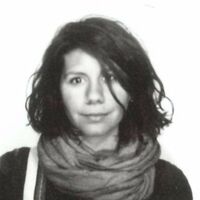
Karis Medina is the Associate Curator at the Josef and Anni Albers Foundation where she aids and facilitates research on the Alberses. In her own research, her primary focus is studying and codifying the structure of Anni Albers’s textiles and pictorial weavings. She has lectured and led workshops at University College London, Yale University, Pratt Institute in New York, and New Britain Museum of American Art. She has an active art and weaving practice and has shown work in exhibitions in New York, Chicago, New Haven, and Croatia.

Rosario Talevi is a Berlin-based architect, curator, editor and educator interested in critical spatial practice, transformative pedagogies and feminist futures. Rosario is a graduate of the School of Architecture, Design & Urbanism at the University of Buenos Aires. She has held teaching and research positions at the University of the Arts (UdK) and the Technical University (TU) in Berlin and at the University of Buenos Aires (FADU/UBA). Talevi was Guest Professor of Social Design (2021-22) at the Hochschule für bildende Künste (HFBK) in Hamburg. She is a founding member of Soft Agency, a diasporic group of female architects, artists, curators, scholars and writers working with spatial practices.

Ahree Lee is a multi-disciplinary artist working in video, new media, and textiles. Lee received her B.A. from Yale University in English literature and a M.F.A. in graphic design from Yale School of Art. Her commissions include the Asian Art Museum in San Francisco, the Irish Museum of Modern Art, the 01SJ Biennial, Los Angeles Municipal Art Gallery, and the Sundance Channel. Her honors include an artist residency at Santa Fe Art Institute and a Rema Hort Mann Emerging Artist Award nomination, and her work has been written about in Hyperallergic, Metropolis, and Fast Company.
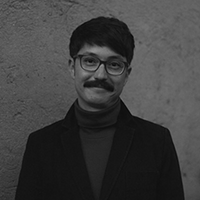
Gary Riichirō Fox is an architectural historian and curator. He has curated exhibitions and research programs at Getty Research Institute and at the MAK Center for Art and Architecture, and he has led history/theory seminars at SCI-Arc and UCLA. His work has been supported by the American Alliance of Museums, the Canadian Centre for Architecture, the Graham Foundation, the UC Humanities Research Institute, and the W.M. Keck Foundation, among others. Gary studied at Yale University and the Architectural Association; at UCLA, he is currently completing a dissertation project where his research considers histories of aesthetic governance and environmental simulation.
Partners
A collaboration between the Josef & Anni Albers Foundation and the Thomas Mann House with friendly support from Christopher Farr Cloth & Thomas Lavin.
Loss and Modernity: Lecture and Conversation with Andreas Reckwitz
Goethe-Institut New York (30 Irving Place New York, NY 10003)

Speaker
Andreas Reckwitz studied sociology, political science and philosophy at the universities of Bonn, Hamburg and Cambridge. After his professorships at the University of Konstanz and the European University Viadrina, he is now Professor of General Sociology and Cultural Sociology at the Humboldt University Berlin. He has held numerous fellowships and visiting professorships in Germany and abroad. In 2019, he was awarded the Leibniz Prize of the German Research Foundation. In 2017, he received the Bavarian Book Prize, in 2020, he was shortlisted for the Leipzig Book Fair Prize, and in 2021 he received the Academy Medal of the Heidelberg Academy of Sciences. From 2012 to 2020 he was a member of the advisory board "Education and Discourse" of the Goethe Institute. Andreas Reckwitz has published a number of widely discussed books on the theory of modernity and late modernity, including Die Erfindung der Kreativität (Suhrkamp 2012; English Polity 2017), Die Gesellschaft der Singularitäten (Suhrkamp 2017; English Polity 2020), Das Ende der Illusionen (Suhrkamp 2019, English Polity 2021), and Spätmoderne in der Krise (with Hartmut Rosa; Suhrkamp 2021; English Polity forthcoming).
Partners
Presented in cooperation with the DFG German Research Foundation, 1014: Space for Ideas and the Thomas Mann House.


Towards a Sociology of Loss: Lecture and Conversation with Andreas Reckwitz
German Historical Institute Washington DC (1607 New Hampshire Ave NW, Washington, DC 20009)

Panelist
Andreas Reckwitz studied sociology, political science and philosophy at the universities of Bonn, Hamburg and Cambridge. After his professorships at the University of Konstanz and the European University Viadrina, he is now Professor of General Sociology and Cultural Sociology at the Humboldt University Berlin. He has held numerous fellowships and visiting professorships in Germany and abroad. In 2019, he was awarded the Leibniz Prize of the German Research Foundation. In 2017, he received the Bavarian Book Prize, in 2020, he was shortlisted for the Leipzig Book Fair Prize, and in 2021 he received the Academy Medal of the Heidelberg Academy of Sciences. From 2012 to 2020 he was a member of the advisory board "Education and Discourse" of the Goethe Institute. Andreas Reckwitz has published a number of widely discussed books on the theory of modernity and late modernity, including Die Erfindung der Kreativität (Suhrkamp 2012; English Polity 2017), Die Gesellschaft der Singularitäten (Suhrkamp 2017; English Polity 2020), Das Ende der Illusionen (Suhrkamp 2019, English Polity 2021), and Spätmoderne in der Krise (with Hartmut Rosa; Suhrkamp 2021; English Polity forthcoming).
Partner
Presented in cooperation with the German Historical Institute Washington and the Thomas Mann House.

Celebration of the Installation of Franz von Lenbach’s Portrait of Katia Pringsheim
Los Angeles, Thomas Mann House

Information
For almost 80 years, a painting of an unnamed girl by renowned portraitist Franz von Lenbach was part of a private collection. When it appeared in an auction catalogue in 2018, it was identified as a portrait of Katia Pringsheim, who later married novelist Thomas Mann. The owner, Robert Schoenhofer, has since donated the painting to the Thomas Mann House in Pacific Palisades, the family's exile home. Schoenhofer joins lawyer and genealogist E. Randol Schoenberg in a conversation moderated by Joan Weinstein, director of the Getty Foundation. With Welcoming Remarks by German Consul General Stefan Schneider.
Even though the painting dating from 1892 has been treated as a nameless “portrait of a girl” for decades, it undoubtedly shows Katia Pringsheim at the age of seven or eight. Katia is seen in half profile with a red cap over her dark hair. Her face has been brightly illuminated by the painter and one is drawn to her eyes, her look – concentrated and attentive. When the painting was consigned to an auction house in 2018, Dirk Heiserer took notice of it. The literary scholar and chairman of the Thomas Mann Forum in Munich recognized that it was Katia Mann who was portrayed in the painting, and that it seemed to be a version of a portrait from the same time period that used to hang in Thomas Mann’s Pacific Palisades study and appeared on the cover of Katia Mann’s 1974 book My Unwritten Memoirs. Lenbach had painted numerous portraits of members of the Pringsheim family. When Katia’s parents, Alfred and Hedwig Pringsheim, both from prominent Jewish families, were finally able to leave Germany in late 1939, they took only very few possessions with them. Their exquisite art collection had been either auctioned off or confiscated. In 1940, the grandparents of the donor, Robert Schoenhofer, bought Lenbach’s “Portrait of a Girl” from an art dealer. After a thorough provenance report and discussions between Pringsheim heirs and Robert Schoenhofer, the painting has now been donated to the Thomas Mann House with the generous patronage of the Pringsheim descendants Claudia Beck-Mann, Angelica and Domenica Borgese, Katja Geb-Mann, Anthony Mann, Frido Mann, Raju Mann Ward, Gerrit and Arie Adriaensen, Ruth Bradshaw, Judith Forster, Mike Estermann, Paul Garver, Sarah Garver, Nick Garver, Yurika Pringsheim, Hsiuping Pringsheim, and Tamara Marwitz. By accepting this donation, Villa Aurora & Thomas Mann House e.V. has assumed the obligation to continue to pursue provenance research and to ensure that the portrait and information on its history are made accessible to the public.
On the occasion of the donation and the first public presentation of the painting at the Thomas Mann House, donor Robert Schoenhofer is joined in conversation by Randol Schoenberg, a lawyer and genealogist, specializing in legal cases related to the recovery of looted or stolen artworks, particularly those by the Nazi regime. Schoenberg is the grandson of composers Arnold Schoenberg and Eric Zeisl and widely known for successfully representing Maria Altmann, neé Bloch in her case against the Republic of Austria to return five paintings by Gustav Klimt from the estate of Ferdinand and Adele Bloch-Bauer to their heirs. The conversation is moderated by Joan Weinstein, director of the Getty Foundation whose deep knowledge of the visual arts and strategic philanthropy has led to the creation of meaningful initiatives that have supported groundbreaking research and exhibitions. Weinstein has been active in professional organizations in the fields of art history and philanthropy and has served on a number of non-profit boards. The panelists will explore the potentials of and obstacles for provenance research in Germany and the United States and present the story of Lenbach’s painting and its journey to Pacific Palisades.
After the conversation and welcoming remarks by Stefan Schneider, German Consul General in Los Angeles, there will be a short concert performed by musicians from the Kaleidoscope Chamber Orchestra. Works for soprano and piano by Clara Schumann and Gustav Mahler will be performed by Ariadne Greif and Robert Fleitz.
In person event at the Thomas Mann House. By invitation only.
Partners
This event is a collaboration between the Thomas Mann House, Villa Aurora and the Kaleidoscope Chamber Orchestra.

City of Refuge: Exile, Dispossession, and Cultural Renaissance
Los Angeles, UCLA Luskin Conference Center (UCLA Luskin Hotel & Conference Center)
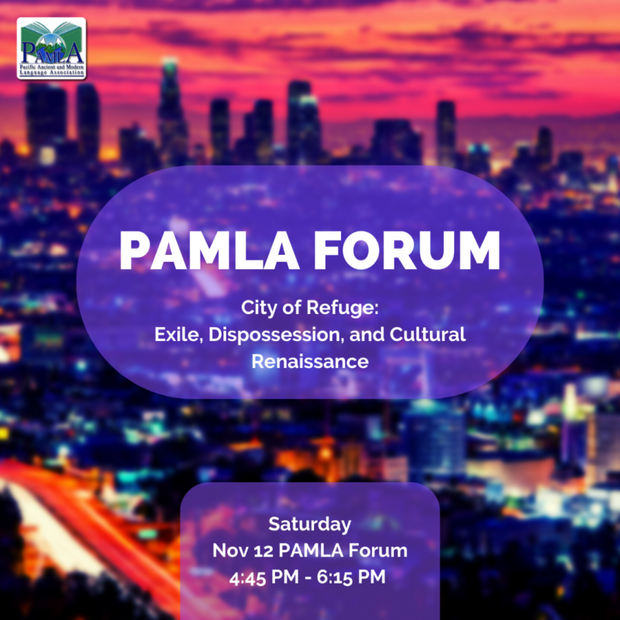
Information
Dr. Alison Rose Jefferson’s presentation will explore California Coastal Zone enclaves and their significance as places within the African American experience. Dr. Jefferson will discuss these spaces, historically and geographically, as connected to California Dream mythology, the urban beach landscape, Southern California beach culture, American history and identity, and contemporary heritage conservation efforts. She will discuss how the Applied History programming, Belmar History + Art developed for Santa Monica, is empowering people with useful knowledge for civic engagement, justice, and equality, while facilitating individual and community pride.
Thomas Mann House Program Director Benno Herz was invited to discuss the work of the Thomas Mann House, the Mann families’ connections to Los Angeles and the network of intellectuals they found there. After fleeing Nazi Germany, writer and Nobel Prize winner Thomas Mann found refuge for himself and his family in the Pacific Palisades, a quiet residential neighborhood in Los Angeles between Santa Monica and the Pacific Ocean. Mann was one of many European intellectuals who fled to Los Angeles, forming a community known as “Weimar on the Pacific.”
Jan Lin will examine dynamics of gentrification and displacement in Northeast L.A. Speculator-investors and corporate developers have subjected Latinx families to rent increases and mass evictions, uprooting social networks instrumental to economic survival. Lin draws attention to the rise of Latinx anti-gentrification movements to resist their displacement and cultural erasure.
Click here for more information.
Participants

Benno Herz is the Program Director at the Thomas Mann House Los Angeles. He worked in the online communication division at the Städel Museum Frankfurt, Germany, before joining the Thomas Mann House. Prior to this, he studied Theater, Film and Media Studies at the Goethe University Frankfurt focusing on digital aesthetics and interface theory. In 2021 and 2022, he taught a Digital Humanities class on European Exile at University of California, Los Angeles. He is co-editor and co-author of the publication Thomas Mann's Los Angeles: Stories from Exile 1940-1952 (Angel City Press, 2022).
Partner
An Event by the Pacific Ancient and Modern Language Association.

Exit Exil. Escape routes and temporary networks
Berlin
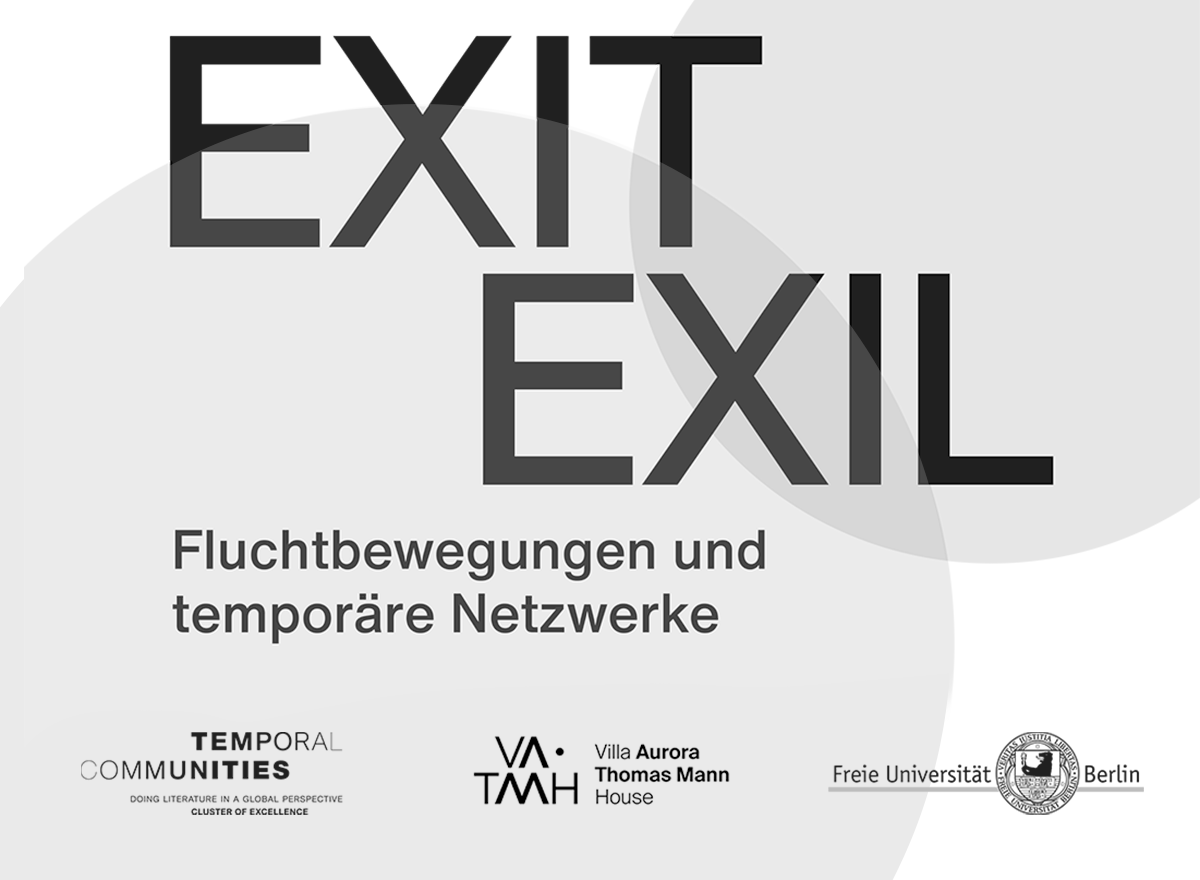
Information
This workshop is a continuation of a cooperation between VATMH and KMM that began in the winter semester of 2021/22, from which six short audio features were produced under the project title "Exit Exile. Dialogues" six short audio features have emerged: Master students of the FU Berlin had the opportunity to interview current and former scholarship holders of the VATMH residency programs and to enter into a dialogue with each other in the context of a research with a historical exile person.
In the workshop "Exit Exile. Escape Routes and Temporary Networks," authors, writers, and scholars will engage in conversation. The workshop will discuss, on the one hand, the different forms of escape routes and, on the other hand, the temporary networks and communities that often emerge during the flight - on the way to a place of exile that is as safe as possible and as final as possible.
The discussion begins with the perspective of the historical exiles, especially the intellectuals who had to flee Germany (first) to other European countries and then overseas, to the United States or even to Central and South America, at the latest after the Nazis had seized power.
The discussion will not only remain with a possible historical classification, but will repeatedly establish references to the present.
The following questions will be explored: Which (emigration or flight) paths do exiles generally take? What continuities, breaks and obstacles do the fugitives experience on their paths into exile? What communities do they form with other people who meet the same fate? Are these more or less loose connections, communities of purpose or communities of fate, which make the suffering of the individuals on the run more 'bearable' in the group, so to speak? Or do these loose connections possibly give rise to sustainable networks, structures that could only emerge from the event of flight? Do these communities serve as a substitute for a so-called "home"? What happens after an initially successful flight in the respective transit countries or in the countries of exile that ultimately take in the refugees - possibly forever? How does the relationship of exiles to their country of origin change over the course of their exile? Is exile a temporary state per se, which - in the best case - must be overcome?
Partners
A cooperation of Villa Aurora & Thomas Mann House and the Cluster of Excellence 2020 "Temporal Communities - Doing Literature in a Global Perspective" and the Seminar for Cultural and Media Management (KMM) at Freie Universität Berlin.
“Subject Studies: Reorientations" – Event Series developed by Rosario Talevi and Jia Yi Gu
Los Angeles

Information
Reorientations invites dialogue between artists, architects and cultural experts and the MAK Center in order to address such forms of institutional labor and collaborative practice, beyond the public presentation of projects and work, with the aim of cultivating porosity and permeability within administrative and care-taking practices of the institution and its publics. The program series brings together artists, architects, public intellectuals, scholars, students and cultural and political leaders to exchange dialogue on social values, methods and thoughts relevant to contemporary issues in art and architecture.
On December 8th, 2022, the Thomas Mann House will be the site of a discursive dinner event, Ingesting: Discursive Dining at the Thomas Mann House, convened by 2022 Fellow Rosario Talevi and MAK Center Director Jia Yi Gu.
Learn more about all programs and events here.
Partners
This program is supported in part by the California Arts Council Recovery Grant, Department of Cultural Affairs, Los Angeles (DCA), PICE AC/E's Programme for the Internationalization of Spanish Culture, and the Thomas Mann House.

How to: Community Engagement?
Goethe-Institut Los Angeles (1901 W. 7th St. Suite AB Los Angeles, CA 90057)

Information
In 2021, the Goethe-Institut Los Angeles launched "The Neighborhood Interpretive Center:" a hyperlocal initiative of cultural programs that focus on and uplift the MacArthur Park/Westlake neighborhood and surrounding areas. The project engages with local partners to present programs developed with and relevant to the community, with a greater understanding of the area's unique history, dynamics, heritage, and distinctiveness.
2022 Thomas Mann Fellow Swenja Zaremba's project in Los Angeles is dedicated to collaborative spaces on the local level and inclusiveness in public collaboration. During her time in L.A., she will examine how local participatory approaches can strengthen trust in interactions between civil society and institutions to see what transformative potential for public organizations as well as for civil society networks these approaches hold.
Join the "Neighborhood Interpretive Center" project partners Byron, Pauletta Pierce, Robin Garcia, the Frida Kahlo Theatre, Homies Unidos, and Thomas Mann Fellow Swenja Zaremba for a collective gathering and evening of conversation focused on community engagement.
This event is free of charge and open to the public. Please RSVP and find further information here.
Participants
Swenja Zaremba co-heads the German network of the Anna Lindh Foundation on behalf of the Goethe-Institut e.V. and is research associate at the Centre for Cultural and General Studies (ZAK) at the Karlsruhe Institute of Technology (KIT). She studied Literature, Journalism and Communication Science in Karlsruhe and Nancy. In addition to coordinating public science projects at ZAK, other positions took her to the headquarters of the Goethe-Institut as a trainee and to the University of Damascus for a teaching assignment. She publishes on topics in the field of international cultural relations, civil society and participation, interculturality and internationalization. She was a member of the working group "Civil Society in Foreign Cultural and Educational Policy" and is a member of the working group “Middle East/North Africa" of the German Foreign Office. Swenja Zaremba is a 2022 Thomas Mann Fellow.
Festival de Barriletes
For the past four years, on November 1st, All Saints' Day, giant kites have been created and installed at MacArthur Park as part of the annual Festival de Barriletes LA. Through kites inspired by Maya communities, art, and traditions, the festival seeks to commemorate and amplify the struggles of people whose lives have been lost to various forms of state violence. At the Goethe-Institut, writer, artist, and educator Byron Jose led a series of English-language immersion training and kite construction workshops for Maya children and im/migrant youth displaced in the MacArthur Park area. Participants worked toward acquiring language skills, learned about indigenous communities in Guatemala, and how they celebrate this day to honor and send messages to their dead through giant colorful kites. The Goethe-Institut Project space served as the venue for the kite building workshops, additional public programs, and a final exhibition of the kites created for the 5th annual installation.
Vibing with Cultural Leafs
With the understanding that cultural awareness can help us better understand differences and cross barriers, cultural worker Pauletta Pierce led an eight-week workshop for Westlake community members aged 13-24, who have little or no experience in the arts. These workshops explored how bias and information are processed as a way of understanding culture. At the Goethe-Institut, Pierce implemented Zaretta Hammond’s “Culture Tree” teaching model where participants constructed a mixed media Culture Tree presentation called “Vibing with Cultural Leafs." With an emphasis on the rich, diverse cultural history of the Westlake/MacArthur Park neighborhood and cooperation with local artists like Pop Locker Street Dancer O.G. Jeckle, teaching artist Joan Zamora and Youth IT Video Creator Angelique R. Hurtado incorporated various disciplines, including dance, video production, and street art, as part of the workshops. The project culminated with a public presentation of the participants’ “Culture Tree” at the Goethe-Institut.
Voices in the Water
This storytelling, movement, and memory sound installation by Robin Garcia and Nefertiti Altan, through an afro-diasporic storytelling format, reflects on the stories, songs, and significance of water from the diasporic, immigrant, black, Latinx, and Indigenous communities in and around the MacArthur Park/Westlake area. The team drew on their experience working in and around the area and experience using contemporary dance methods. A remembering/oral history methodology was utilized to activate the vibrational consciousness of memory in the body, making for a somatic experience as community members shared their ancestral and cultural stories about water. Black and Indigenous elders and culture bearers were also part of the storytelling project that further anchored and highlighted the cultural and ancestral traditions of surrounding communities. Stories gathered became be the platform from which an immersive soundscape of intertwining voices, sounds, and rhythms was designed to fill the gallery space in a call and response format.
Disrupting the Mainstream
For thirty-five years, Grupo de Teatro SINERGIA has produced predominantly original works in Spanish and English. The plays have been directed and performed by L.A. Latinx/Mexican and Central American theatre artists. In 1994, under the Artistic Direction of Rubén Amavizca-Murúa, the group moved into what is now The FRIDA KAHLO Theater in the Westlake district of Los Angeles. The group's productions focus on historical, political, and social themes that are relevant to and directly affect the primarily immigrant community. These original productions have also toured both nationally and in Mexico. Some of the original works presented by the group have also been produced in Belgium, Latvia, and Spain. The Goethe-Institut Project space served as the venue for "The FRIDA KAHLO Theater - Disrupting the Mainstream," a Spanish and English language audio-visual retrospective and exhibition. The restrospective documents the history of the FRIDA KAHLO Theater and its impact on the community, highlighting the group's most significant productions. In addition to the performance of excerpts from select plays from the theater's history, the exhibit also featured work generated by young artists and community members in the form of photography, animation, and theatre for youth. A panel discussion with FRIDA KAHLO Theater artists, L.A. historians, journalists, and scholars placed the theater's body of work in a cultural and historical context.
Encuentros-Encounters
Serving the Pico-Union, Westlake, and Koreatown communities, Homies Unidos presents trauma-informed and culturally competent art, education, and leadership development activities tied to social justice advocacy programs. For their project, the Goethe-Institut Project space served as a venue for "Encuentros-Encounters," offering an intergenerational and cross-cultural dialogue around pressing social issues such as immigration, mass incarceration, and climate change. At the heart of the project is an art exhibition featuring the work of artist Kiara Machado, as well as works created by participants from Homies Unidos' youth programs. Public events will included artist talks, a film screening, musical performances, and educational workshops focusing on intracommunal solidarity and arts production.
Partner
This is an event of the Goethe-Institut Los Angeles in collaboration with the Thomas Mann House Los Angeles. Part of the Neighborhood Interpretive Center, a hyperlocal initiative of cultural programs that focus on and uplift the MacArthur Park/Westlake neighborhood and surrounding areas.

Bureaucracy Under Populist Rule?
Los Angeles, Thomas Mann House

Information
The German sociologist Max Weber once described the regularity and routine of public administration as a basic condition for efficient political control and protection against arbitrariness, since everyone has to play by the same rational rules. But does this definition still hold up today, considering the rise of populist tendencies that are gaining momentum and increasingly influencing political developments and elections on both sides of the Atlantic? What is the role of public administration in today's world of contested democracies when, for example, the legitimacy of electoral processes is relying on the functioning of these administrative processes? How can public administration become more resilient when it is both claimed and demanded by civil society on the one hand and by political leaders on the other? Or is it perhaps for this very reason that a return to rational Weberian principles is necessary?
2022 Thomas Mann Fellow Rubina Zern-Breuer, a historian and innovation researcher, focuses on interactions between public administration and civil society. She will be joined by Professor Michael W. Bauer, Chair of Public Administration at the School of Transnational Governance at the European University Institute, Florence, Italy and by journalist Joe Mathews, co-president of the Global Forum on Modern Direct Democracy & democracy editor of Zócalo Public Square. The conversation, which will transition into a fishbowl discussion with the audience, explores how resilient public administrations can protect democracies against populist pressures and restore trust in democratic institutions. The discussion will be moderated by Alexandra Lieben.
The discussion will take place in the living room of the Thomas Mann House.
In person event at the Thomas Mann House. By invitation only.
Participants

Michael W. Bauer is Professor at the School of Transnational Governance and Academic Director of the Master of Arts programme in Transnational Governance. He is Jean Monnet Professor of the European Union and Chair of Comparative Public Administration and Policy Analysis at the German University of Administrative Sciences Speyer. He holds a Masters in European Studies in Politics and Administration of the College of Europe, Bruges and a PhD from the European University Institute, Florence. His research focus and teaching experience lie in European multilevel administration, public administration and comparative policy analysis.

Alexandra Lieben is the Deputy Director of the UCLA Burkle Center for International Relations – and lecturer at the Luskin School of Public Affairs. She has served as faculty advisory on several social impact projects at the UCLA Anderson School of Management. For the past eight years, she has taught seminars in crisis prevention, crisis de-escalation, constructive communication, multi-stakeholder conflict resolution, community development, and cultural competency for executives and managers of public safety and public sector agencies, from law enforcement to fire, EMS, public health, as well as non-profits, local, state, and federal agencies. Alexandra Lieben is a member of the Thomas Mann House Advisory Board.

Joe Mathews is California and innovation editor at Zocalo Public Square. He was a reporter for the Los Angeles Times, the Wall Street Journal, and the Baltimore Sun. He is co-author of California Crackup: How Reform Broke the Golden State and How We Can Fix It and author of The People’s Machine: Arnold Schwarzenegger and the Rise of Blockbuster Democracy. He is co-president of the Global Forum on Modern Direct Democracy. Joe also serves as a professor of practice at Arizona State University’s School of Public Affairs, as fellow at ASU’s Center for Social Cohesion, and as co-president, with Bruno Kaufmann, of the Global Forum on Modern Direct Democracy – which brings together academics, journalists, activists and other experts on initiative, referenda, and new forms of deliberative and participatory democracy.

Rubina Zern-Breuer is a research project coordinator at the German University of Administrative Sciences Speyer, where she has headed the Innovation Lab for Public Administration since 2018 and also teaches. After studying Modern and Contemporary History as well as Sociology at the University of Karlsruhe, she completed her PhD at the University of Würzburg, spending time abroad at the DHI Rome, among others. In addition to coordinating public science projects at ZAK | Centre for Cultural and General Studies at Karlsruhe Institute of Technology, Rubina Zern-Breuer further positions took her to the University of Heidelberg and as a senior researcher at the Fraunhofer Institute for Systems and Innovation Research ISI. Zern-Breuer is a 2022 Thomas Mann Fellow.
Partners
This event is organized by the Thomas Mann House Los Angeles and co-presented by the School of Transnational Governance at the European University Institute and Democracy International and Zócalo Public Square.







